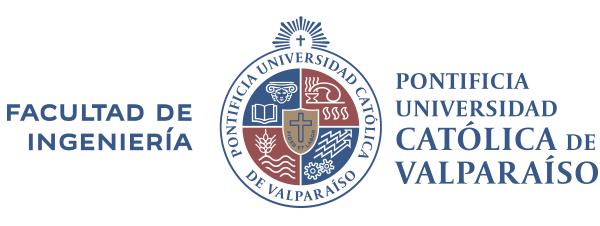School of Biochemical Engineering
Biocatalysis
Enzymes Biotechnology is that area of Biochemical Engineering devoted to the analysis, design and operation of systems for the production and use of these biocatalysts. At present, there is a notable increase in the use of enzymes in the process industry and in medicine. In Chile, the consumption of enzymes has increased notably in recent years, and there are interesting perspectives for application in the food, wine and pharmaceutical industries. Projects have been developed related to the production and use of soluble and immobilized lactase for application in the dairy industry, immobilized penicillin acylase for the hydrolytic and synthesis stages of obtaining modified β-lactam antibiotics, cellulases and pectinases for use in the industrialization of fruits and in the production of wines. In addition, the use of enzymes in the production and modification of vegetable oils and fats, in the revaluation of agroindustrial waste. We are also actively working on the optimization of the operation of enzymatic reactors, and on the enzymatic kinetics in the organic phase.
The main work approaches are:
• Production, application and kinetic studies of immobilized enzymes
• Enzymatic kinetics in organic solvents
• Use of enzymes in industrial applications and waste revaluation
Environmental Biotechnology
Environmental pollution, climate change and the development of new sources of renewable energy are problems, and at the same time major challenges that seriously affect the living conditions in our country and worldwide. This situation, due to its magnitude and scope, requires multidisciplinary solutions. Within this context, the role of the biochemical civil engineer is of great importance, by combining their integrated knowledge about biological systems and process engineering.
For this reason, research projects are currently under development for the transformation of biomass into liquid and gaseous biofuels (such as methane and hydrogen), through anaerobic microbial digestion or fermentation processes. We are actively working on the aerobic and anaerobic treatment of industrial and residential effluents, using state-of-the-art bioreactors. In addition, the nitrification and denitrification processes, through which nitrogenous compounds responsible for the eutrophication of ecosystems can be eliminated from the waters, are studied. More recently, projects have begun in the area of microalgae production, and recovery of added value compounds from organic waste under the concept of biorefinery. On the other hand, there is vast experience in the field of biofiltration of gases and soil bioremediation. All the processes mentioned above are continuously evaluated and represented under different mathematical models, in order to be able to predict the behavior of bioreactors and deliver design and optimization tools.
Cell cultures
Cells are very versatile and highly specialized production systems. However, in order to fully express its potentialities, its culture requires highly defined environmental and nutritional conditions, taking into account physiological, engineering and operational factors.
In this area, the interrelation between the culture conditions and the physiological response of the cell is studied, through the design of optimized culture strategies, based on the improvement of the environment, choice of the culture modality (culture by batch, culture by fed batch, continuous culture) and disposition of the cells (free or immobilized); for the production of enzymes, protein and metabolites, both primary and secondary.
Microbial cells such as bacteria, yeasts and filamentous fungi, which can be native as collector, mutant and recombinant strains, are used for this purpose. In recent years, recombinant animal cell cultures have been incorporated for the production of biopharmaceuticals, with EIB being a pioneer in research in this field at the national level.
Since 1974 the School of Biochemical Engineering has developed several research projects, in aspects related to the physiology and kinetics of leaching microorganisms, the bioleaching of low grade minerals, tailings and flotation concentrates, and the use of bioreactors, with mechanical and pneumatic agitation.
Currently, work is being done on the bioxidation of minerals and gold refractory concentrates in reactors. This technology -implemented on a large scale in Australia, South Africa, Ghana and Brazil- allows a better recovery of gold by the cyanidation process, when the metal is covered with a film of insoluble sulphides.
You can define three research areas:
• Fermentation Engineering
• Recombinant Microorganism Culture Engineering, and
• Culture of Recombinant Animal Cells
Recovery of Biomolecules
The biomolecules recovery research line focuses its efforts on the development of processes and technologies for obtaining molecules with biological activity and scientific-commercial interest, such as polyunsaturated fatty acids and oils, antioxidants, oligosaccharides and peptides, among others, and either through its recovery from plant matrices, animals, and even microorganisms, or through their synthesis through biotechnologies. These processes may include, in addition to the separation, concentration and purification of these molecules, by conventional techniques or by alternative techniques and environmentally friendly with the products and with the environment.
Sub-Research Lines:
• Recovery of Primary and Secondary Metabolites from Fermented culture liquid.
• Use of Enzymes in the Recovery and/ or Production of Bioactive Molecules.
• Revaluation of Waste from Agribusiness as Source of Biomolecules.
